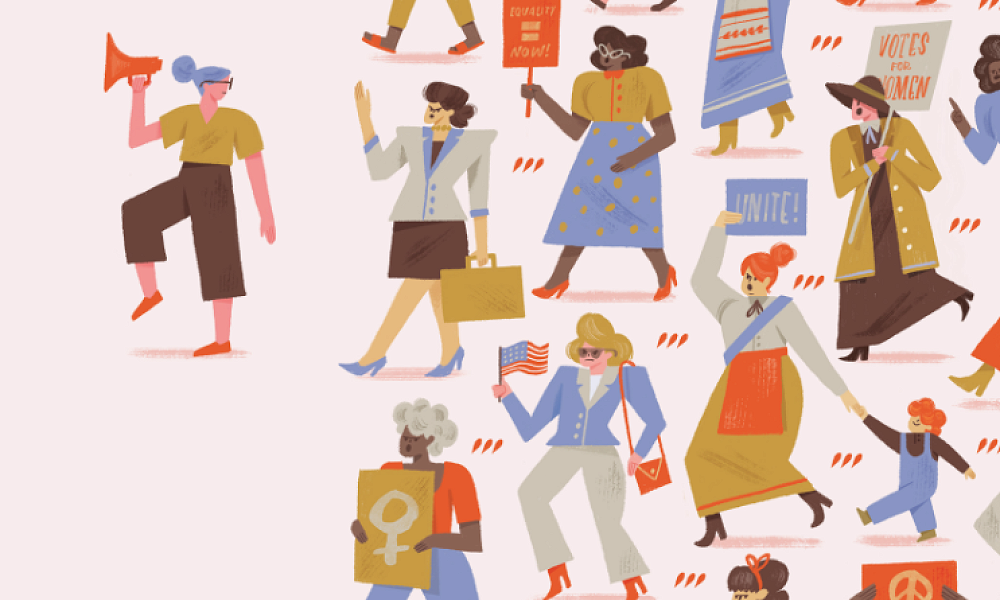
Cultivating Change for Women in Politics
The need for female representation in world politics is now.
We see powerful women all over the world, but 'women in power' remain significantly underrepresented in a wide range of professional fields, including business, academia, politics, and the media. We face the challenge of changing the commonly internalised perception of fixed gender roles. Despite advances in women's representation in influential positions, a surprising number of people around the world continue to doubt women's ability to lead effectively. These biases are deeply ingrained and must be overcome. According to the World Economic Forum's Global Gender Gap 2022 report, it will take 155 years to achieve gender parity in politics globally.
When it comes to women's participation in political and public life, there are numerous obstacles, including cultural biases and traditional gender stereotypes. Gender inequality exists in the twenty-first century, whether we want to admit it or not. Looking around Aotearoa, we can see the crux of misogyny towards women in power. Jacinda Ardern, the Labour Party's young and dynamic leader, served as Prime Minister for six years. For many people, seeing a woman's face front and centre discussing some of the world's most pressing issues was very inspiring. She was praised around the world for her ability to lead the country during a time of tragedy. On two widely publicised occasions, she truly demonstrated to the world what women are made of. Her parliamentary response to the 2019 Mosque terrorist attack, as well as her alert system response to Covid, were both outstanding, inspiring many other leaders to follow her lead.
However, despite her success, being a woman didn't go unnoticed. Misogynistic critics, protestors, and the like are constantly dehumanising her for the sake of their own preconceptions. Searching Ardern's first or last name never fails to generate a result of a variety of derogatory terms, with thousands of results containing dehumanising, sexist, deeply misogynist tropes and dangerous speech frames. Not to mention the TikTok’s, memes, and GIFs. Despite this, in her resignation speech this year she stated that the online abuse was "not the basis of my decision." However, those saying their farewells to Ardern have highlighted the level of vitriol directed at the former Prime Minister and her family, saying it was insufferable.
The political arena is brutal, and women frequently struggle to maintain enough confidence and tenacity to see beyond this aspect of politics. Women are subjected to a lot of pressure in society, and they tend to conform. But why is this so? Why can't we put the same amount of pressure on a male leader? They have the same credentials, roles, and education. We, as a generation, are doing ourselves no good deed by fighting for education rights, voting rights, equality for women, if where those decisions are made there are not women present. We do ourselves a great disservice by conforming and not taking the risk. I believe there is a genuine need for more education and understanding of politics and global issues for women, as this is something that many of us as students are not exposed to. As a female secondary student, I have taken it upon myself to learn about politics by keeping up with political changes, elections, and global conflicts. However, from experience doing this alone is not easy. So often I am met with the “Don't worry you just don't understand it”, “Its ok it doesn't affect you”, or even “This goes way above you head”. WHY? WHY? WHY? Why am I not getting it? Please inform me because I am here to listen and learn. I'm as fresh as a daisy. How does it not have an impact on me? I am fortunate to live in a democratic country. I now have a job and pay taxes; I am a human being. Politics has an impact on me. And no, this isn't going over my head because I'm standing right in front of you looking you in the eye, please tell me how this goes over my head?! Hello, I am a woman, I am intelligent, I am strong, and I want to be involved in global conversations.
One solution to gender equality is to change the image of leadership roles rather than the image of women or men. Social media and popular culture creators play an important role in an age of AI and the online world. If coverage and conversations about women's leadership are to have negative consequences, we must make it a routine duty to replace such with content that embraces and highlights equity in these positions of power and how incredible the ideas that are brought forward. Too often, the media focuses on how incredible it is to see a female leader, while overlooking their ideas and purpose. This does nothing to change the deep seated perception that women in power are the exceptions rather than the norm. We need to normalise female leadership so that wāhine like my peers and I can feel empowered to be leaders, rather than fear the small possibility we have of getting there. In the words of Chlöe Swarbrick when she visited HGHS this term. “It is about having a critical lens, it's not about fitting into a structure that doesn't have room for us, it's about designing a different structure that does.”
More women in political leadership, I believe, creates a powerful role model effect as well as decisions that represent a broader community. By having women in positions of power, we begin to show the younger generation that it is possible. For me, seeing people like Kamala Harris, Jacinda Ardern, and Taiwan's Tsai Ing-wen has been extremely motivating. Women must have an equal say in issues ranging from pandemics to wars to climate change. We are facing some of the most significant challenges that humanity has ever faced, and with women constituting half of the population, we must be involved in planning the future.
The time is now to see powerful women as women in power.
